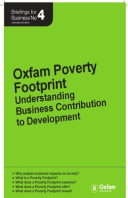From 9-11 October, 2011, the Max Rubner-Institut (the German Federal Research Institute of Nutrition and Food, in Karlsruhe) organized the first international conference on Food Metabolomics
Food is an exceedingly complex and dynamic biochemical system. The chemical composition of each food, characterized by a pattern of hundreds or even thousands of compounds, is influenced by many factors, including origin and variety, environment, production and processing procedures or even storage conditions. Consequently, the chemical composition of a food determines its quality in terms of nutritional value, health benefit as well as sensory characteristics and provides the scientific basis for food safety assessment.
Metabolomics attempts to analyze comprehensively the complete set of small molecule metabolites present in a biological system such as a food. This Omics-approach would therefore be an excellent tool to evaluate food quality as well as food safety in a context of food scandals, counterfeiting or even climate change.
The Max Rubner Conference sought to cover the whole range of metabolomics applications in food sciences and research and brought leading international experts who presented the advantages as well as limitations of the various metabolomics methods.
Among the addressed topics:
- Metabolomics of Genetically Modified and Non-transgenic Crops
- Metabolomics as a Tool to Characterise Food Intake.
- Use of Metabolite Profiling for the Detection of Biomarkers in Cohort Studies
- Metabolomics Approach to Residue and Contaminant Analysis
- Metabolomics to Characterize and Study the Quality of Fleshy Fruits
- NMR-based Quality Control of Food: From Research Application to High Throughput Screening
- Organic versus Conventional Farming of Wheat: Influence on Metabolite Profiles





